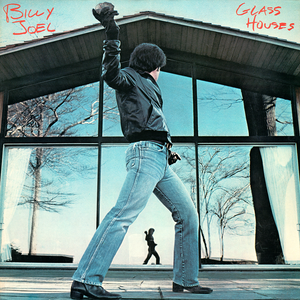Published on Sep 25, 2003
Hard as it is to believe, once upon a time Billy Joel
was a rock and roll singer instead of someone who toured with Elton
John. (Elton John was a rock star once, too, but that’s another
review.) Joel’s early career — roughly from 1971-1982 — is filled
with biting, incisive, acidic rock music that’s a far cry from his
later adult contemporary singer-songwriter schtick. It’s a measure
of Joel’s genius that he does both genres equally well; but you
younguns who have only heard
River Of Dreams need a little historical awareness, and I’m
here to give it to you.
Because, frankly,
Glass Houses rocks. The pinnacle of Joel’s angry young man
persona, Glass Houses is a rock and roll masterpiece, hard-hitting,
biting, and crisp. The sound is minimalist; Joel was flirting with
punk and New Wave influences, and those notes are woven all through
the CD. Production and engineering is spare and lean; even the
radio-friendly songs (and Glass Houses spawned four American chart
hits) have a certain clean elegance about them.
That’s the genius of
Glass Houses; the songs. Out of ten tracks on the CD, nine
of them are pure brilliance. “Don’t Ask Me Why” and “It’s Still
Rock And Roll To Me” remind us of a long-ago mythic age when radio
programmers played good songs. “You May Be Right,” another chart
single, is a great piece of pop-rock. “Sometimes A Fantasy” is
crystallized paranoia, driven by one of the greatest bass and drum
lines in music history.
And you know what? Those aren’t even the best songs
on
Glass Houses. That laurel goes to “All For Leyna,” a
haunting tale of romantic obsession whose keyboard intro has stayed
with me for twenty-two years. Also worth noting is “Sleeping With
The Television On,” where Joel almost sounds like Elvis Costello in
his pissed-off stage, and the truly frightening “Close To The
Borderline,” about a man one straw away from a broken camel.
Glass Houses is the crown jewel of Billy Joel’s career as a
rock singer, and should not be missed.
